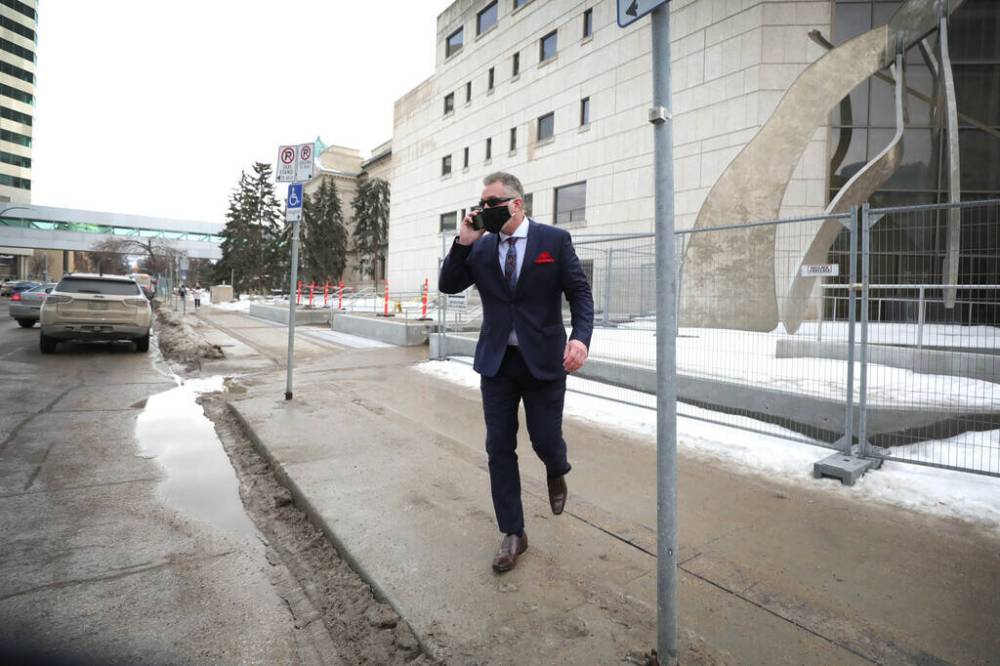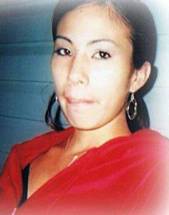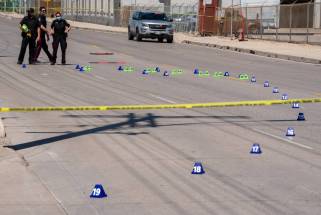Shaky Crown performance in police trial shakes trust in justice system
Read this article for free:
or
Already have an account? Log in here »
To continue reading, please subscribe:
Monthly Digital Subscription
$0 for the first 4 weeks*
- Enjoy unlimited reading on winnipegfreepress.com
- Read the E-Edition, our digital replica newspaper
- Access News Break, our award-winning app
- Play interactive puzzles
*No charge for 4 weeks then price increases to the regular rate of $19.00 plus GST every four weeks. Offer available to new and qualified returning subscribers only. Cancel any time.
Monthly Digital Subscription
$4.75/week*
- Enjoy unlimited reading on winnipegfreepress.com
- Read the E-Edition, our digital replica newspaper
- Access News Break, our award-winning app
- Play interactive puzzles
*Billed as $19 plus GST every four weeks. Cancel any time.
To continue reading, please subscribe:
Add Free Press access to your Brandon Sun subscription for only an additional
$1 for the first 4 weeks*
*Your next subscription payment will increase by $1.00 and you will be charged $16.99 plus GST for four weeks. After four weeks, your payment will increase to $23.99 plus GST every four weeks.
Read unlimited articles for free today:
or
Already have an account? Log in here »
Hey there, time traveller!
This article was published 08/06/2022 (1279 days ago), so information in it may no longer be current.
Did the Crown take a dive?
There are many questions swirling around the recent acquittal of Winnipeg Police Service Sgt. Sean Cassidy, who, while off-duty, had been accused of chasing down landscaper Jamie Cote, pulling him from his vehicle and attacking him.
What exactly happened between the two men in La Salle where the confrontation began? Who chased whom on the highway into Winnipeg? How much force was used to get Cote out of his vehicle?
All those pale in comparison to the biggest concern hovering over this case: was this a prosecution deliberately designed to fail?
Following the acquittal last week, the answer has still not been unearthed.
The are few undisputed facts in this case.
Shortly after midnight March 28, 2017, Cassidy crossed paths with Cote in the bedroom community of La Salle. Cote said he was delivering flyers for his landscaping business; Cassidy said, given the late hour and a rash of recent break-ins, the vehicle was suspicious.
What happened between that initial point of contact and a “high-risk” traffic stop on the outskirts of Winnipeg at about 1 a.m. is most definitely in dispute.

Cassidy said he was chased out of La Salle by Cote, drove into Winnipeg where he alerted police via a 911 call. When uniformed officers arrived in a squad car, Cassidy admitted took the lead and forced Cote from his vehicle. He admitted punching Cote twice, saying he was resisting.
Cote claims Cassidy chased him from La Salle, positioned his van in front of Cote’s truck and swerved back and forth to prevent him from getting away. Once back in Winnipeg, Cote said he stopped his vehicle when he saw a police car. It was at that point, Cote said, Cassidy pulled him out and repeatedly punched and kicked him in the head.
Cote, along with a friend travelling with him, were released without charges.
In May, Cassidy was ultimately acquitted of all charges. However, in rendering that decision, provincial court Judge Sidney Lerner raised serious concerns.
In a six-page decision, Lerner outlined several points about how Crown attorney Brett Rach — a Brandon prosecutor brought in because he had no previous association with the accused officer — handled the case.
(Jamie) Cote claims Cassidy chased him from La Salle, positioned his van in front of Cote’s truck and swerved back and forth to prevent him from getting away.
Lerner wrote, as prosecutor, it was Rach’s responsibility to prove Cassidy’s guilt beyond a reasonable doubt. However, Lerner noted it was Rach, not Cassidy’s attorneys, who established that doubt.
Rach called the other police officers at the scene as prosecution witnesses, all of whom said they saw nothing inappropriate in the way Cassidy pulled Cote from his truck. Rach also repeatedly argued the court should believe Cassidy, and not Cote, about the degree of force used in the takedown.
On this point, Lerner’s frustration was palpable. He wrote if the Crown argued Cote was not believable about the degree of force used to pull him from his truck, “then the complainant’s evidence as a whole is called into question.” That, Lerner wrote, was enough to establish reasonable doubt.
In other words, the prosecution fell apart at the hands of the prosecutor.
It has left many in the criminal justice system wondering why Manitoba Justice decided to prosecute this case in the first place.
This is not the first time the potential prosecution of a police officer fell apart. The justice system continues to demonstrate a chronic inability to prosecute police accused of criminal wrongdoing.
However, rarely, if ever, does the Crown lay charges and proceed to trial, only to seemingly sabotage its own case.
The questions raised by Lerner in his decision will, in all likelihood, never be answered. In keeping with tradition, Manitoba Justice would not discuss the concerns raised in Lerner’s decision. On Wednesday, it announced it would not be appealing.
The lack of insight and accountability when it comes to Manitoba Justice decision making is also nothing new. Provincial prosecution services do not feel any obligation to explain its decisions, but that doesn’t make it any less frustrating.
The Crown’s decisions to charge or not charge those accused of criminal wrongdoing is just as much a matter of public interest as any aspect of government service. In Canada, however, prosecutorial discretion trumps the public’s right to know.
In Canada, however, prosecutorial discretion trumps the public’s right to know.
For example, when the Crown decided not to lay criminal charges against Phil Sheegl, the former chief administrative officer for the City of Winnipeg accused of pocketing kickbacks from the construction of the WPS headquarters, the public got no explanation.
When compelling evidence of Sheegl’s wrongdoing was later revealed through a civil trial, Manitoba Justice once again declined to explain why it did not proceed to trial.
Things are much different in the United States, where prosecutors are often elected to their positions and thus have to be more accountable to the citizenry. In Canada, prosecutors are hired and prosecutorial discretion lives beyond the reach of any citizen.
If there were good reasons for derailing its own case at trial, Manitoba Justice should explain them. Public trust in the justice system is most definitely at stake.
dan.lett@freepress.mb.ca

Born and raised in and around Toronto, Dan Lett came to Winnipeg in 1986, less than a year out of journalism school with a lifelong dream to be a newspaper reporter.
Our newsroom depends on a growing audience of readers to power our journalism. If you are not a paid reader, please consider becoming a subscriber.
Our newsroom depends on its audience of readers to power our journalism. Thank you for your support.









